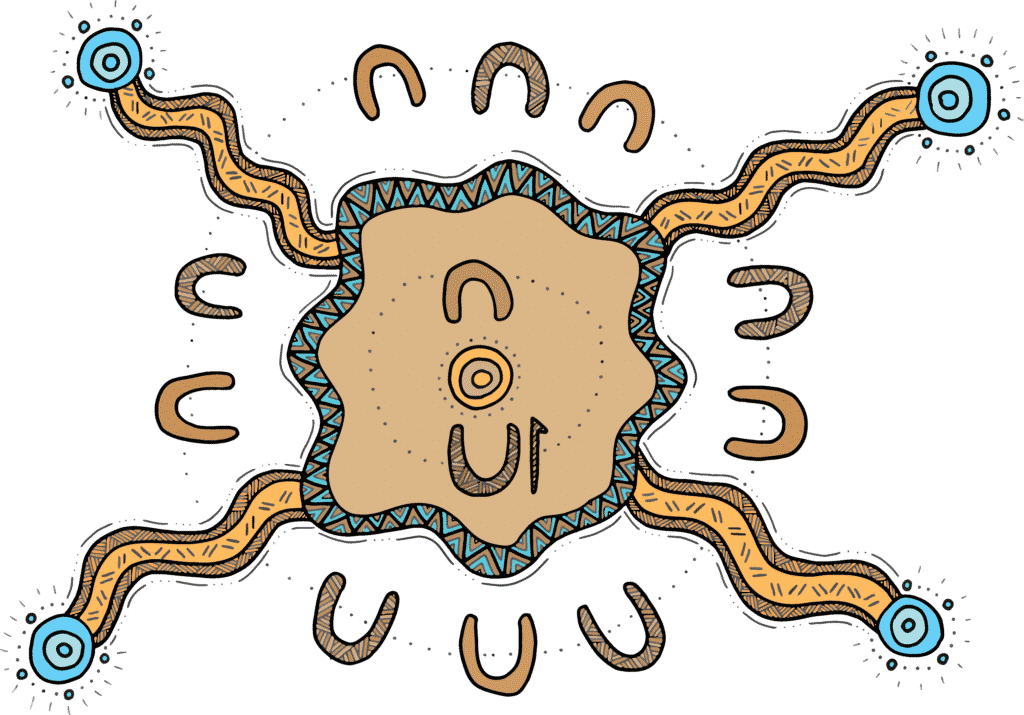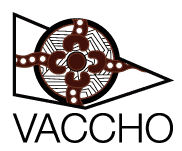Food Policies for Aboriginal and Torres Strait Islander Health
Growing healthy communities.
Recently, VACCHO and Deakin University’s Murnong Health Research Mob created an action agenda to improve the food environment and system for Aboriginal communities in Victoria.
Now. we’re sharing it – in more ways than one.
About the FoodPATH project
The Food Policies for Aboriginal and Torres Strait Islander Health (FoodPATH) project started in 2019 with a simple question: how can we use policy to improve food environments and nutrition in a way that’s effective and acceptable for Aboriginal communities in Victoria?
To find out, we met with five VACCHO Member Aboriginal Community Controlled Organisations (ACCOs) and Deakin University’s Institute for Health Transformation across 12 Community-led workshops.
We listened to Mob’s views, concerns and priorities for nutrition outcomes – and discovered what should inform policy actions.
The result? The FoodPATH report – with a clear, self-determined action plan for government and Community to support vibrant and healthy Aboriginal communities in Victoria.
Did you know?
The way we select, buy and eat food is influenced by many factors – including;
- Advertising
- Promotion
- Price
- Accessibility
And these may contribute to our ‘Community food system’.
Why the FoodPATH project?
For thousands of years, Aboriginal people have lived and thrived in Victoria. Our people hunted and gathered and were the first agriculturalists. In other words, we cared for Country and Country cared for us.
But colonisation changed all this. In just over 200 years, it disconnected Aboriginal people from their land, Culture and traditional ways of using food.
This has led to Aboriginal and Torres Strait Islander people experiencing unacceptable social and health inequities.
But the FoodPATH action agenda is changing that. It gives critical scrutiny to government policies and the food industry’s role in creating health inequity – and aims to grow food sovereignty and food security for Aboriginal communities in Victoria.
Recommended policy for Government and Community
Fast-food restaurants on every street corner. Sweets at children’s eye-level in supermarkets. Poor soil quality. These are just some of the nutrition challenges facing Aboriginal and Torres Strait Islander – and non-Indigenous – communities.
But food insecurity is bigger than just these examples. It’s systemic – with countless socio-economic disparities occurring between Aboriginal and non-Aboriginal communities daily. So, the food industry needs to be scrutinised.
The first in-depth, Community-led research of its kind in Victoria, the FoodPATH report outlines:
- The key barriers Mob face to accessing healthy food environments
- The harmful health and nutrition outcomes these food environments cause
- Five government actions for improving Mob’s health outcomes
- Five Community actions for improving Mob’s health outcomes
Whether you’re a policymaker or Community member, this report provides up-to-date insight to drive meaningful change in food environments for Aboriginal communities in Victoria.
Government Recommendations
Community Recommendations
Learn about Our Food Connections
Action starts with understanding how our Community food system has changed over time.
That’s why we created the Our Food Connections animation and Storybook.
Read the Book
Yarn with Mob about food, nutrition and what it takes to stay healthy and deadly with the Our Food Connections storybook.
Illustrations by Yorta Yorta, Dja Dja Wurrung and Gamilaroi artist Madison Connors (@yarli_creative). Additional illustration by Jacob Komesaroff.
ACCO staff and Community members can access the book at no charge. (For the first 2000 copies only.)
Read the Research
Dive deeper with VACCHO and Deakin University’s research paper: Food Policies for Aboriginal and Torres Strait Islander Health (FoodPATH): A Systems Thinking Approach.
Published in the highly respected Elsevier Journal, this paper outlines the visual models Communities created to identify interconnected factors affecting food access and the Community-led and Government actions.
Watch the Animation
Discover the story of a young Uncle and his nephew as they navigate their Community’s food system.
Illustrations by Yorta Yorta, Dja Dja Wurrung and Gamilaroi artist Madison Connors (@yarli_creative). Additional illustration by Jacob Komesaroff.
Here’s what Jacob had to say about the project: ‘It has been an immense privilege to work with VACCHO and alongside Maddy. Thank you VACCHO for this opportunity.’
About the FoodPATH artwork
By Shakara Montalto, Gunditjmara woman
This artwork represents the significance of the whole tribe workings together as one, in the important task to gather food and water.
The two symbols sitting in the centre facing one another represent a man and the other, a woman. The circle in the middle of them represents them coming together, to work as a collective, to gather food to feed the entire tribe. The sitting symbols on the outer represents the whole tribe and the importance of everyone playing a role in either hunting, preparing or cooking food.
The brown and orange colours represent the traditional Aboriginal land, which our people cared for and maintained, to ensure a healthy food supply, all year round for thousands of years. The curved paths have walking tracks that represent the tribe going out to look for bush tucker.
The blue circles represent the rivers, oceans and waterholes and the importance of water for our people. Collecting, preparing and cooking food was such an crucial part of our tribes’ daily tasks. This ensured survival for many thousands of years, eating a nutritious well-balanced diet.

Contact us for more information
If you’d like more information, please get in touch with the VACCHO Nutrition team by submitting this form.
